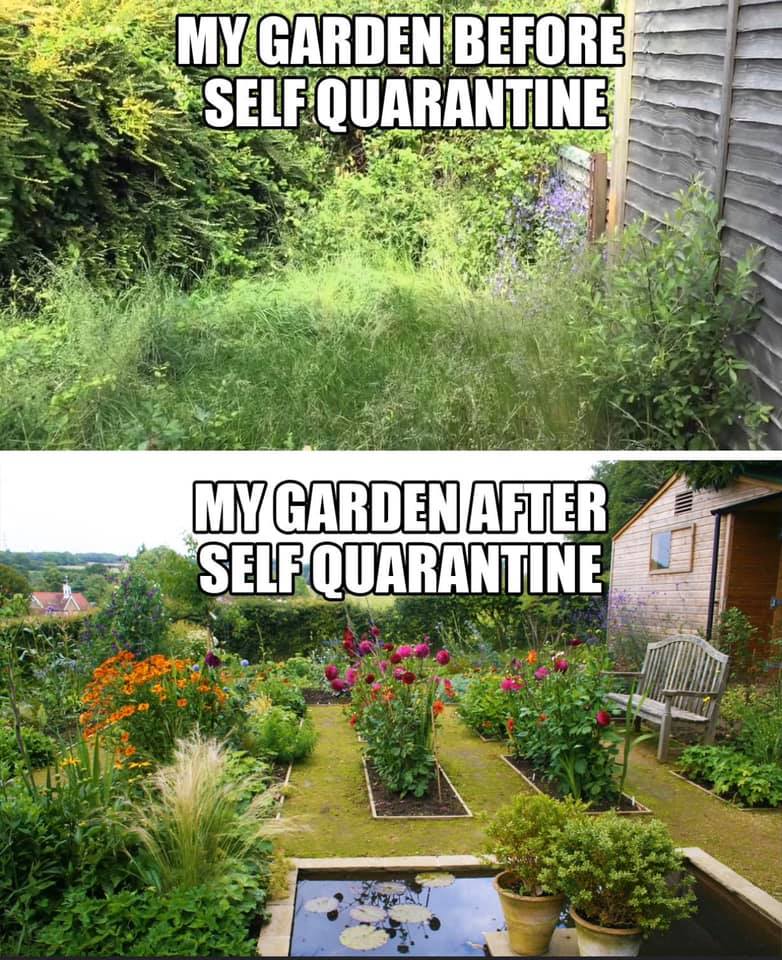This year, April 19-25th is National Volunteer Week, and an important time to stop and consider all of the goodness that Master Gardener volunteers bring to this world. The 2019 Annual Report provides an overview of the incredible work that Master Gardener volunteers do across the state of Oregon: 52.5 tons of food donated to food pantries and food banks; support of 29 school gardens, 46 community gardens, and 23 educational gardens; over 200,000 hours volunteered and over 139,000 Oregonians served!
In 2020, and despite the pandemic, Master Gardener volunteers continue to do good things in their communities. Many are individually participating in the Plant a Row for the Hungry campaign by allocating space in their personal garden to grow food for local food banks or soup kitchens. Master Gardeners in Polk and Lincoln Counties have turned the disappointment of cancelled plant sales as an opportunity to donate fresh veggie starts to those in need in the community. The Benton and Linn County Master Gardeners have been teaching Seed to Supper beginning vegetable gardening classes using distance learning. The online Master Gardener short course made their vegetable garden course free, and more than 29,000 have enrolled in less than a month (currently, the number enrolled is passing 31,000). This year, these efforts are needed more than ever, as we’re experiencing disruptions to global food distribution chains, demand is rising at local food banks, and the collective efforts of Master Gardeners to grow food as a group has been upended by the Governor’s Stay Home Save Lives executive order.
I want to take the time to recognize the great work being done by nearly 3,000 Master Gardener volunteers across the state, while also recognizing the incredible hardships that individual volunteers and Master Gardener chapters may be suffering. In February, as I was travelling the state to teach Master Gardener classes, I met so many people who told me how important their volunteer colleagues were to their daily life. In some cases, the Master Gardener shared that they had suffered a huge loss in their life, and how their volunteer colleagues were the ones who were helping them get through a very difficult time. I worry so much about the Master Gardeners who benefit from or depend on the social interactions of our volunteer Program. I encourage Master Gardener volunteers to continue checking on their colleagues and friends from the Program via phone, social media, email, or another safe method that maintains recommended social distancing.
The Oregon Master Gardener Association and its chapters, our 501(c)3 friends, are also grappling with losses. Multiple Master Gardener plant sales, garden fairs, educational events, and other spring gatherings have been cancelled. These events are seen as a harbinger of spring and the unofficial kick-off of the spring gardening season. The funds raised from these events help to fund the many Master Gardener scholarships, grants, and educational outreach programs that are offered across Oregon. It remains to be seen how these losses will affect the philanthropy and outreach of the Oregon Master Gardener Association and its affiliate chapters.
The good news is that I have yet to hear of a Master Gardener volunteer, faculty member, or staff member who has suffered serious illness as a result of COVID-19. I hope that is indeed the case, and that you all are staying healthy and safe.
The other good news is that our Governor has shared a plan to reopen Oregon, that includes several benchmarks she would like to see met.

On the flip side, the bad news is that the Master Gardener Program remains in a holding pattern: continuing our suspension of face-to-face activities, meetings, and events until the Governor lifts of modifies EO 20-12. I know that this is disappointing to many, including me. But, the Master Gardener Program is aligned with Oregon State University, and as a state agency, OSU is strongly encouraging everyone to Stay Home, Save Lives.
Perhaps the most frustrating aspect of the Stay Home, Save Lives order for many Master Gardener volunteers is what this has meant for plant care in Master Gardener-tended gardens and greenhouses. We are working with Master Gardener faculty and staff to try and ensure that watering is provided to plants on OSU property. For gardens and greenhouses that are not OSU property, such as at county fairgrounds or on community college property, OSU is adhering to the current policies of our partner organizations. And in many cases, our partners have closed their facilities to the public and have severely restricted who can visit or work on their property. Even if the property might be open, we are still unable to greenlight face-to-face Master Gardener program volunteer activities, until EO 20-12 is modified or lifted.
I truly am grateful for all of the great work that Master Gardener volunteers do across the state, and I’m PROUD of the way that Master Gardener volunteers have responded to hardship with generous, ingenious, and creative ways to give back to their community during this pandemic.
I hope that one small silver lining might be that you have more time to work on your personal garden or to tend to your houseplants. And, if you don’t have a personal garden or houseplants to tend, I hope that you have been able to get out into the beautiful Oregon weather that we have been having, to enjoy the sunshine and the beauty of local trees, shrubs, and birds. Most of all, I hope that you stay safe and healthy, and that I get to see all of my Master Gardener friends in person, very, very soon.
Take care,
Gail Langellotto, OSU Extension Master Gardener Coordinator


